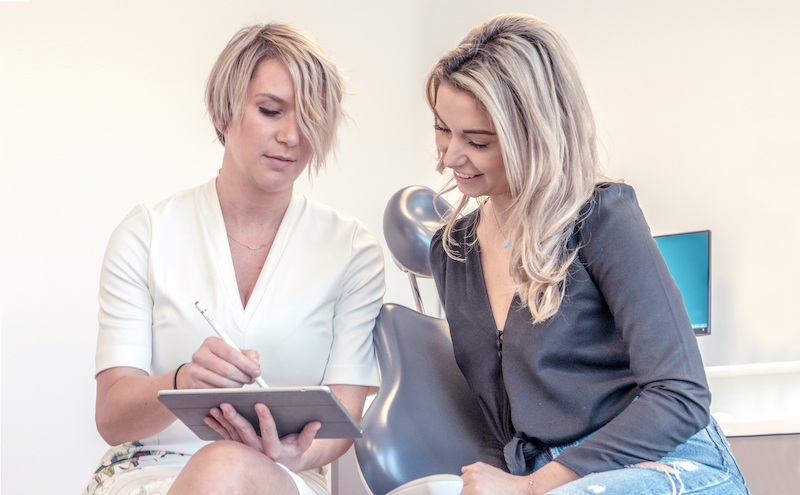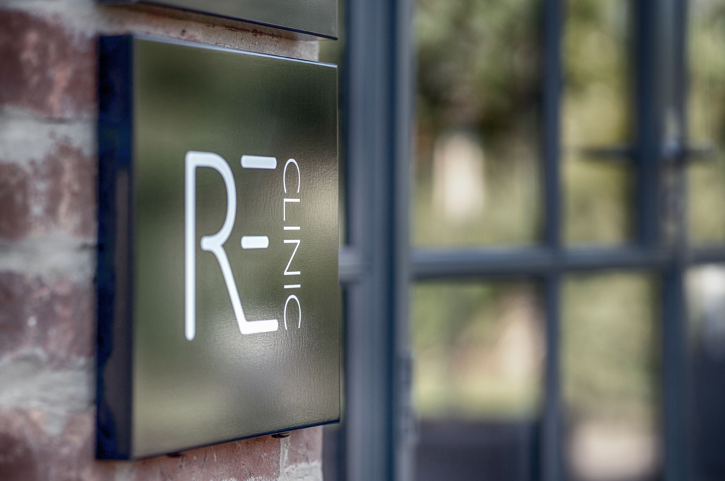What is Collagen?
By Dr Martina Pirklova Dip Imp Dent RCS (Eng). Level 7 Certificate in Injectable Aesthetic Non-Surgical Interventions
Read further as Dr Martina explains what Collagen is and how it makes a difference to your appearance.

What is Collagen?
In this blog, I’d like to share my thoughts on Collagen. It is a word so frequently used but so often misunderstood.
Collagen is a structural protein that naturally occurs in our body, holding our bones, skin, muscles and tendons in place, often called ‘the body’s scaffolding’. The name Collagen comes from the Greek word for ‘glue’ because it literally holds things together in your body.
There are an impressive twenty-eight different types of Collagen, however types one to four are the main ones we see most often today, and they make up more than 25% of protein levels in the body.
What do the different types of Collagen do?
Collagen Type I
The most common type of collagen found in the human body is Type One (around 90%). Type One gives structure to many different elements of the body, including the skin, bones, tendons, cartilage, connective tissue and teeth.
It is the type of collagen that starts to deteriorate as we get older, creating less firm skin, brittle nails, thinning hair and fine lines and wrinkles. Because of this, it is also the most common type supplemented for healthy skin, hair and nails.
Collagen Type II
This is the type of collagen that helps support your joints, cushioning between the bones in the body, giving cartilage strength, and is used in a supplement form for osteoarthritis and other types of joint and muscle pain.
Collagen Type III
Supporting muscles, organs and arteries in the body, Collagen Type III is the second most seen collagen type and is generally found in bone marrow.
Collagen Type IV
This is found in the layers of the skin. It forms in sheets (like pasta layers in a lasagne) to help keep shape and structure.
Why are we talking about Collagen?
Did you know that in our twenties, we can expect to lose around 1% of collagen per year but this increases to as much as 6% by the time we reach fifty years old?
As we get older, the human body creates less and lower quality collagen, causing the skin to become less firm with a lack of elasticity, creating saggy skin, fine lines and wrinkles. Reduced Collagen also weakens cartilage, making breaks in bones more common.
Collagen is now commonplace in beauty products, used in shampoo (to help strengthen hair), in beauty creams and balms, and it can also be taken as a daily nutritional supplement in either powder or capsule form. There is limited, reliable information available around the safety and effectiveness of these supplements but it has been said it can help to strengthen hair, nails and give a fresher look to the skin. Long-term use can also help to relieve pain caused by Osteoarthritis. Combining supplements with weight training is also said to increase strength and grow muscle mass.
How can you create natural collagen in the body?
There are certain foods you can eat that are said to help your body create collagen. Citrus fruits, egg whites, dairy, animal organs like kidney and liver and nuts. Boned fish is also a good source of collagen proteins.
What things should be avoided to keep collagen levels high?
You should avoid sugar, smoking and sunshine in order to maintain good levels of collagen in the body.
What is Medical Collagen made from?
Collagen is a protein found mostly in hair, skin, nails, bones, and ligaments, and Medical Collagen including supplements comes mostly from animal sources, such as beef or fish.
What is Medical Collagen used for?
Collagen is often said to be the elixir of youth, and it truly can deliver incredible results.
Collagen is used to help create an artificial layer of skin for people who have suffered burns and can help to construct/repair bones. Collagen can be used in bone grafting, helping to strengthen the body after injuries like breaks and fractures.
Closer to home, at REclinic, Collagen treatments are also used by Dr Martina to create a fuller, plumper look to the body and to smooth out wrinkles.
Thinking of giving your body a collagen boost?
We offer a selection of treatments to give you a natural and fresh-looking face, with our Profhilo treatment being classed as a ‘biostimulator’ - shown in clinical tests not to just improve hydration in the skin but to also boost the skin's elasticity and collagen levels too.
Would you like to find out more?
You can find further information about our range of treatments on our website.
If you would like to book a FREE consultation with Dr Martina please get in touch via our contact page.

Follow us on social media to see before and afters, patient journeys, informative stories, and to find out more about the other treatments we offer.